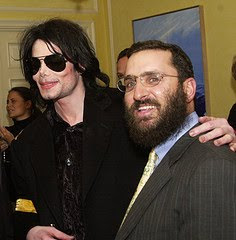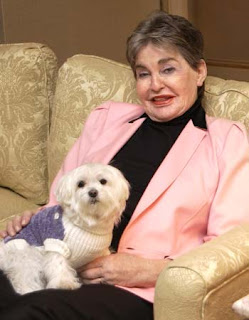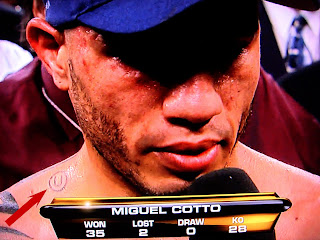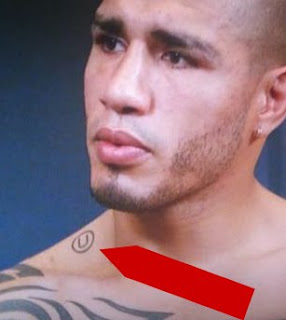Skype-based tutoring — piloted last year and formalized this year at [Temple] Micah [in Washington D.C.] — is not only a convenient, inexpensive way to give kids personal attention in Hebrew, but it frees up time at the once-a-week school for other lessons, explains Deborah Ayala Srabstein, the temple’s education director. Micah is one of a growing number of congregations using technology to address two of the most vexing challenges facing supplemental, or Hebrew schools: how to teach Hebrew effectively and how to best make use of increasingly limited classroom hours. Whereas a generation ago it was not uncommon for children to report to Hebrew school three afternoons a week, today’s programs —which tend to serve overscheduled families and compete with an array of other extracurricular activities — often meet as little as two hours per week.
Category: Jewish
Within hours of the publication of yesterday’s 50 Most Influential Rabbis list by Newsweek Magazine, I began to hear complaints about this list.
On Twitter and Facebook, as well as in the blogosphere and in person, people complained about the idea that a mainstream magazine like Newsweek (which is for sale if anyone’s interested) would publish an unscientific listing of top rabbis.
Year after year, the only rabbis who seem to like this list are the ones who make the ranking and can then add the accolade to their bio and have their temple, synagogue or organization issue a press release.
One comment on Facebook regarding the list chastised these influential rabbis. “Personally, I have little respect for influential rabbis. It means they are spending too much time on their public image and too little on being rabbis.”
Others took exception with the high number of non-congregational rabbis who made the list. “Really? They’re more influential than the rabbi who has spent his (or her) whole life in a pulpit serving the needs of their congregants? I’d have to say, I’m not sure that’s really true. They’re more visible certainly, but fame isn’t the same as influence.”
Julie Wiener of The NY Jewish Week wrote the Top Ten Reasons To Hate Newsweek’s Annual Top Rabbis List. I have to agree with many of her arguments. I too was surprised at the number of misspellings on the list. After all, if Shmuley Boteach and Avi Weiss are so influential and famous, how can their names be botched in a high-profile magazine like Newsweek (Schmuley and Weis!)? By the way, I know a few out-of-work, not-very-influential rabbis who’d be willing to proofread future articles on the Newsweek website.
I agree with Julie that it’s odd that Newsweek runs such a list for rabbis and not for any other group of religious leaders. Honestly, I don’t think I’d find a Top 50 list of imams or priests to be very interesting and that’s exactly how I imagine the 98% of the country’s population that isn’t Jewish feel about this list (not to mention the 98% of Jewish Americans who have never heard of these rabbis and could care less about how influential two guys think they are).
The #1 rabbi on the list, Yehuda Krinsky, is the leader of Chabad Lubavitch. He’s very influential when it comes to Chabad, but probably much less influential for non-Chabad following Jews. Not to mention, there’s a deceased rabbi who still holds more influence over Lubavitchers than even Krinksy.
I’ve never really liked these lists anyway. After all, some “Who’s Who” lists are just made up of the people in that field who agreed to purchase the “Who’s Who” book after it was published. Other lists (e.g., 40 under 40) are just made up of people who were nominated by one person rather than an actual election.
This list really comes down to who are the most well known rabbis in the country. Getting published, running an organization, or being elected president for a two-year term in your denomination’s rabbinic group should put you somewhere on this list. Short of that, having a television show and hanging out with Michael Jackson or the President puts you in the top ten. A rabbi of a 100-member congregation in a small, nobody-ever-visits city may be very influential in that community but the two Hollywood moguls (Sony Pictures Chairman and CEO Michael Lynton and Time Warner Exec VP Gary Ginsberg) who make the Newsweek list will never have heard of him/her.
If Newsweek really wants to know who the most influential rabbis in the country are, they should probably take a field trip to any Hebrew School where a rabbi stands in front of a class of 2nd graders once a week.
On Christmas Day 2007, I wrote that Mike Huckabee, then a presidential hopeful, liked to eat Chinese food on Christmas like many Jewish people.
Huckabee explained his family’s Christmas tradition: “…we have an unusual tradition that after the Christmas Eve service we go out and eat Chinese food. Don’t ask me why.”
Jewish people flock to Chinese restaurants on Christmas because they’re the only restaurants open. The oft told joke is that the difference between the Hebrew calendar and the Chinese calendar is about 1,000 years — which means that this was how long Jews had to go without Chinese food.
Now, today we get word from the woman who is likely to be the next Supreme Court justice that she also frequents Chinese restaurants on Christmas.
In Elena Kagan’s Supreme Court confirmation hearings, Senator Lindsey Graham of South Carolina probed Kagan on the threats to the United States, asking her if she was unnerved by the Christmas day bomber. He asked her, “Where were you on Christmas Day?”
To which the Jewish Kagan responded, “Like all Jews, I was probably at a Chinese restaurant.”
Senator Patrick Leahy of Vermont, the Judiciary Committee chairman quipped, “I could almost see this one coming.”
And Senator Chuck Schumer explained to the committee, “Those are the only restaurants that are open!” (Video below)
Perhaps this Christmas Eve at a table in a Washington D.C. Chinese restaurant will sit Supreme Court justices Stephen Breyer, Ruth Bader Ginsberg, and Elana Kagan, just having a nice Chinese dinner like many other Jews around the country.
When Leona Helmsley, the NYC hotel operator and real estate investor known as “The Queen of Mean,” died she was mostly talked about as a billionaire who donated a large portion of her fortune to her dog.
However, her Charitable Trust (The Leona M. and Harry B. Helmsley Charitable Trust) has recently announced grants totaling more than $10.1 million to help fund three major projects in Israel, including one that has been very close to my heart since a trip to Israel in 2002.
In addition to multi-million dollar grants to the Tel Aviv Sourasky Medical Center and the Weizmann Institute of Science, Helmsley’s trust also gave $2 million for the benefit of the Zahal Disabled Veterans Organization, which will help build a state-of-the-art center in Beersheva for rehabilitation and support services for disabled veterans and victims of terrorism. This grant also will help construct and equip the center in order to provide a supportive environment for rehabilitation and integration of disabled veterans and victims of terrorism in southern Israel. The center, whose total cost is $23.3 million, is scheduled to open in the fall of 2010.
My wife and I were vacationing at the Dead Sea in December 2002 when we met some new friends and became acquainted with Nechei Tzahal (Zahal Disabled Veterans Organization).
We met Yisrael Abayov, a successful architect from Tel Aviv, who shared his story of fighting for Israel in 1978 when he was hit with a bullet. It was a direct shot to his left temple leaving him disabled for the rest of his life. He was lucky to be alive. In addition to Yisrael, there were hundreds of men at our hotel who became severely disabled while fighting for Israel. Some, like Yisrael, can barely walk anymore, even with the aid of a cane or a walker. Others are amputees, missing an arm or a leg, and bound to a wheelchair for the rest of their lives. Others still, were not injured while on active duty, but rather suffered life-long disabilities from a terrorist explosion while waiting at a bus stop just trying to get back to the base after a weekend off. They were at the Dead Sea to find some temporary relief from their disabling pain through the therapeutic powers of the Dead Sea.
They come each year for two or three weeks, and most of the hotels are very accommodating to their needs, displaying a level of handicapped accessibility that is unmatched anywhere in the world. The Israeli Government pays for their much-deserved vacation, but if it is not taken by the end of the year, the opportunity is lost. Thus, many of them make their vacation to the Dead Sea at the end of every December; making the Dead Sea, in essence, the unofficial convention and reunion of Israel’s disabled veterans.
I spent an hour talking about politics and religion with a couple of veterans who were on the beach with their wives. One of these men, whose foot was blown off by a land mine in the Sinai Desert in 1956, explained that he and his wife had been coming to the Dead Sea for three decades and it is the only time he feels any relief from his injuries. When I remarked to the other veteran how nice it is that the Israeli government provides them with a complimentary vacation for a couple of weeks, he looked me in the eyes, put his hand on my shoulder, and said, “Trust me, we paid for it.”
I’m glad that in death, Leona Helmsley (born Lena Mindy Rosenthal) has been able to improve on her reputation. The woman who served a prison term, famously said that only the little people should pay taxes, and left the bulk of her $4 billion estate to her Maltese, has posthumously become philanthropic to some very important causes.
At Wimbledon, John Isner won the fifth set, 70-68, finally beating Nicolas Mahut in the longest tennis match ever recorded in tennis history.
I was curious whether Isner might be Jewish based on his last name, but a quick Web search answered that question.
On Isner’s personal website, he answered the following question from a fan:
YOU ARE A GREAT ROLE MODEL, BY ANY CHANCE, ARE YOU OF JEWISH DESCENT?
Submitted by Judith Meyer, Briarcliff, New YorkIsner: “I’m glad to hear that you think I’m a good role model, i appreciate that comment. Actually I am not of jewish decent but I get asked that frequently I guess because my last name sounds somewhat jewish.”
This past March, around the same time I began to blog for The New York Jewish Week, a banner ad on the Jewish paper’s website caught my attention.
The ad featured a head-shot of a man and the text “My Rabbi Saved My Life.” First, I thought “what a great ad since it grabs your attention and makes you want to click through to see what it’s all about.”
Clicking on the link took me to a website for The New York State Diabetes Campaign. There, I learned that this was part of a Faith Fights Diabetes campaign aimed at religious leaders and encouraging them to speak with their congregations about diabetes and general health. On the Faith Fights Diabetes campaign website, there are seven religious leaders including a guru, rabbi, priest, minister, pastor, and two imams (one male and one female).
My father was diagnosed with Type 1 Diabetes when I was two-years-old, so this is certainly a cause that I am directly connected to and one that has my full support. But I also wondered whether it is the role of clergy to get involved in the medical lives of those in our congregations.
This subject truly resonated with me recently when the spouse of one of my congregants asked me to intervene in his wife’s eating habits. He felt that she, a diabetic, was eating poorly and putting herself at a great health risk. I thought of the Faith Fights Diabetes campaign and how rabbis (and other faith leaders) really could play a positive role in the health lives of our congregants. When I served an internship at a large synagogue in New Jersey, we had two congregational nurses on staff who served important roles for synagogue members. There, the rabbi might refer a congregant to one of the nurses, but I really don’t see a reason why the rabbi himself cannot speak openly about the importance of eating right, exercising and getting regular medical exams.
The campaign encourages clergy to learn how to fight the diabetes epidemic in congregations. It recommends that a poster about diabetes is hung in public areas of the church, temple, mosque, or faith-based organization. Some practical tips for clergy include serving healthier food at congregational events and discussing diabetes in a sermon (sample sermons are on the website).
As spiritual leaders, we have great influence on our congregants. Why shouldn’t we use our pulpit to promote healthy living and ensure that the people we care about are informed about Diabetes?
Yesterday marked the 49th day of the BP oil spill. Perhaps BP was going for the Hanukkah story connection, which is “The Oil lasted for 8 days.” Instead, BP got confused with the Jewish holiday of Shavuot, which is 49 days of counting the harvest and the 50th day (Shavuot) is the anniversary of the giving of the Torah on Mt. Sinai.
Hopefully this environmental mess will be remedied soon as the effects on wildlife are certainly a violation of the Jewish principle of “tzar ba’alei chayim” — the responsibility to treat animals ethically.
Here is the complete video of Rabbi David Nesenoff (RabbiLIVE.com) asking Helen Thomas her views on Israel. Watching it, one gets the idea that Helen Thomas has always held these opinions, but can no longer keep them to herself now that the almost 90-year-old has lost her filter and says whatever she’s thinking. Listen carefully and you can hear the woman sitting next to her remark, “Helen is blunt.”
Perhaps that’s the understatement of the year!
In May 1996 I sat in the Breslin Center arena in East Lansing as I watched my then girlfriend (now wife) graduate from Michigan State University. A year prior I watched President Bill Clinton speak to the crowd at Spartan Stadium for MSU commencement. The speaker at this graduation was none other than Helen Thomas, former UPI and Hearst Newspaper columnist of Lebanese descent.
Fast forward more than a decade. A couple years ago I watched an interesting documentary on HBO about Helen Thomas titled “Thank You Mr. President.” It detailed Helen Thomas’ long career in the front row in the White House Press Corp where she always got to ask the first question.
This past Saturday night, my wife asked me if I had heard what Helen Thomas said about Israel. I tuned into YouTube to find an impromptu interview conducted by none other than my colleague, Rabbi David Nesenoff, a Conservative rabbi on Long Island (Temple Tikvah Synagogue of Hope in East Northport). At the White House for last week’s Jewish Awareness Month dinner, Nesenoff asked the 89-year-old Thomas what she thought of Israel and she responded that the Jews should leave Israel and return to Germany and Poland.
 Nesenoff (pictured) runs a website called RabbiLIVE.com in which he posts various video footage of him interviewing people (sometimes undercover with a hidden camera). I’m sure when Nesenoff pointed the camera at Helen Thomas he wasn’t expecting that her recorded words would eventually bring about her downfall, but that’s precisely what happened.
Nesenoff (pictured) runs a website called RabbiLIVE.com in which he posts various video footage of him interviewing people (sometimes undercover with a hidden camera). I’m sure when Nesenoff pointed the camera at Helen Thomas he wasn’t expecting that her recorded words would eventually bring about her downfall, but that’s precisely what happened.
Helen Thomas retired today and issued the following statement: “I deeply regret my comments I made last week regarding the Israelis and the Palestinians. They do not reflect my heart-felt belief that peace will come to the Middle East only when all parties recognize the need for mutual respect and tolerance. May that day come soon.”
White House Press Secretary Robert Gibbs said today that Thomas’s comments about Israel were “offensive and reprehensible.” During his press briefing this morning, which Thomas did not attend, Gibbs said that though he hasn’t spoken with Obama about the her comments, they “do not reflect” the view of his administration. He added, “she should, and has apologized.”
Some might argue that it’s not the place of a rabbi to conduct interviews like the one Nesenoff conducted of Helen Thomas. However, Nesenoff’s video showed the world what Helen Thomas really thinks of Israel. It should be a wake-up call that someone with those views has not only been covering the news for so many decades, but has had such a high level of access to our nation’s leaders.
Even before Helen Thomas resigned, she had been dropped by her speaker’s agency, Nine Speakers, Inc for her comments posted on RabbiLIVE.com. Also, Craig Crawford refused to work with Helen Thomas on any future book projects and she was dropped from a High School graduation key note speaker position.
Former White House Press Secretary Ari Fleischer and Lanny Davis, former White House counsel, both called for Hearst Corporation to fire Helen immediately.
Thanks to Rabbi David Nesenoff, Helen Thomas now ends her storied career on a very sour note. And deservedly so.
The Jewish boxer Yuri Foreman, who is originally from Haifa Israel and training to become an Orthodox rabbi, just lost in a TKO decision to the Puerto Rican fighter Miguel Cotto at Yankee Stadium.
While I was disappointed that Foreman lost his title, I thought it was funny that at the end of the fight while Cotto was being interviewed by an HBO reporter, it became apparent that he was sporting a tattoo on his right collarbone that looks like the kosher symbol of the Orthodox Union (OU).
As I posted on Twitter:
Yuri Foreman keeps kosher and apparently Miguel Cotto IS kosher. You’d think the OU would advertise with the Jew.
Update: Miguel Cotto got the tattoo as a gesture for a Jewish friend of his. Here’s the background story on Cotto’s kosher tattoo with video below courtesy of Elie Seckbach:











